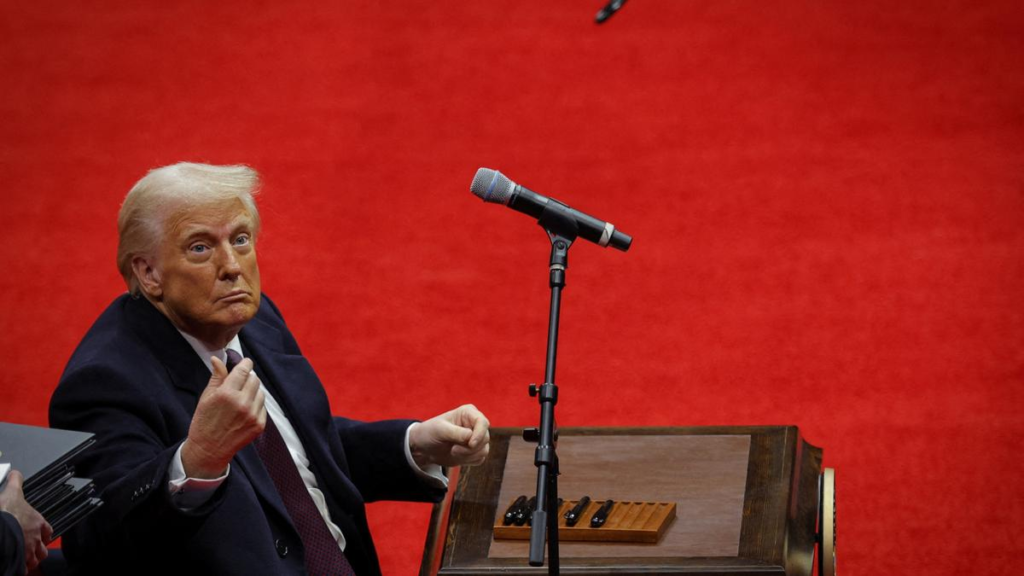Former President Donald Trump is reportedly exploring a bold financial move: taking Fannie Mae and Freddie Mac public. This step would mark a major shift in U.S. housing policy, potentially ending more than a decade of government conservatorship over the mortgage giants. The implications of such a move could reverberate across the housing market, affecting homebuyers, investors, and the broader economy.
Understanding Fannie Mae and Freddie Mac
Fannie Mae (Federal National Mortgage Association) and Freddie Mac (Federal Home Loan Mortgage Corporation) are government-sponsored enterprises (GSEs) that play a vital role in the American housing market. They don’t issue mortgages themselves but buy mortgages from lenders, guarantee them, and sell them as mortgage-backed securities (MBS) to investors. This helps keep mortgage money flowing and makes home loans more accessible.

During the 2008 financial crisis, both institutions suffered massive losses due to the collapse of the housing market. To prevent a broader financial meltdown, the federal government placed them under conservatorship through the Federal Housing Finance Agency (FHFA), where they remain today.
Trump’s Proposal: Ending Conservatorship
Trump has long advocated for returning the GSEs to private hands. Sources close to his campaign suggest he is considering making the privatization of Fannie and Freddie a central plank of his economic policy platform if he wins re-election in 2024. The move would involve allowing the companies to raise capital from private investors and exit federal control.
Trump’s former administration had already begun working toward this goal, with officials including former FHFA Director Mark Calabria championing the cause. However, the plan stalled during the Biden administration, which emphasized housing affordability and regulatory oversight over privatization.
Why It Matters: Impacts on the Housing Market
Taking Fannie Mae and Freddie Mac public could have significant consequences for the housing sector:
- Mortgage Rates: Privatization could lead to higher mortgage rates. Without government backing, investors may demand higher returns for the increased risk, which lenders could pass on to borrowers.
- Home Affordability: Higher mortgage rates could worsen the affordability crisis in an already tight housing market, especially for first-time buyers.
- Investor Interest: Fannie and Freddie’s return to the stock market could attract investors eager to bet on stable, income-generating financial institutions. Both stocks had been delisted from the NYSE and now trade over-the-counter.
- Regulatory Risk: Privatization might reduce federal oversight, raising concerns about risk-taking similar to pre-2008 behaviors.
Political Divide: A Contentious Issue
The idea of privatizing the GSEs has been divisive. Conservatives argue that the government has no place in the mortgage business and that privatization would bring market discipline and reduce taxpayer risk. They claim that Fannie and Freddie’s structure creates moral hazard, as investors assume the government will always step in during crises.

On the other hand, Democrats and housing advocates caution that privatization could hurt low- and moderate-income borrowers. They emphasize the importance of federal oversight in ensuring fair lending practices and access to affordable housing.
What Experts Are Saying
Economists and financial analysts have mixed reactions to Trump’s consideration. Some believe privatization is long overdue and could stabilize the mortgage market in the long term.
“These companies have become more profitable and better capitalized than ever,” said David Stevens, former president of the Mortgage Bankers Association. “There’s a growing argument to let them operate independently, with the right guardrails.”
However, others warn that without careful planning and regulatory structure, the move could destabilize housing finance.
“Rushing Fannie and Freddie into public markets without a strong framework could spook investors and push up borrowing costs,” said Karen Petrou, managing partner at Federal Financial Analytics.
Wall Street Reacts Cautiously
News of Trump’s potential plan has sparked renewed interest in the shares of Fannie Mae and Freddie Mac, even though they are currently penny stocks. Investors have long speculated about the end of conservatorship, leading to occasional price spikes.
However, Wall Street analysts warn that the path to privatization is politically and financially complex. It would require not only White House support but also approval from Congress and regulators.
Timeline and Next Steps
If Trump moves forward with the plan, a series of steps would need to be taken:
- Capital Build-Up: Both GSEs would need to raise tens of billions in capital to meet regulatory standards and reassure investors.
- Regulatory Approval: The FHFA would need to greenlight the exit from conservatorship, based on a solid business plan.
- Public Offerings: The companies would issue new shares and re-enter the public stock exchanges, likely NASDAQ or NYSE.
- Congressional Action: Although not mandatory, congressional support could ease the transition and provide long-term policy clarity.
Biden Administration’s Likely Response
President Biden and current FHFA Director Sandra Thompson have emphasized stability in housing finance and support for affordable homeownership. They are unlikely to back a rapid privatization strategy. Instead, they may push for hybrid models or stronger regulatory controls if privatization is pursued.
A spokesperson from the White House stated, “We are committed to ensuring that the housing finance system works for all Americans. Reckless deregulation is not the path forward.”
Conclusion
The idea of taking Fannie Mae and Freddie Mac public again is one of the most consequential housing policy proposals in recent history. Trump’s consideration could reignite a national debate about the role of government in housing finance, investor rights, and access to affordable mortgages.
With the 2024 presidential race heating up, this issue could become a major flashpoint. Whether the plan becomes reality depends on politics, market conditions, and public sentiment. For now, all eyes are on Trump’s next move—and the future of American homeownership may hang in the balance.
Also Read – Texas Healthcare at Risk: Medicaid Cuts Loom During Tax Plan Talks






